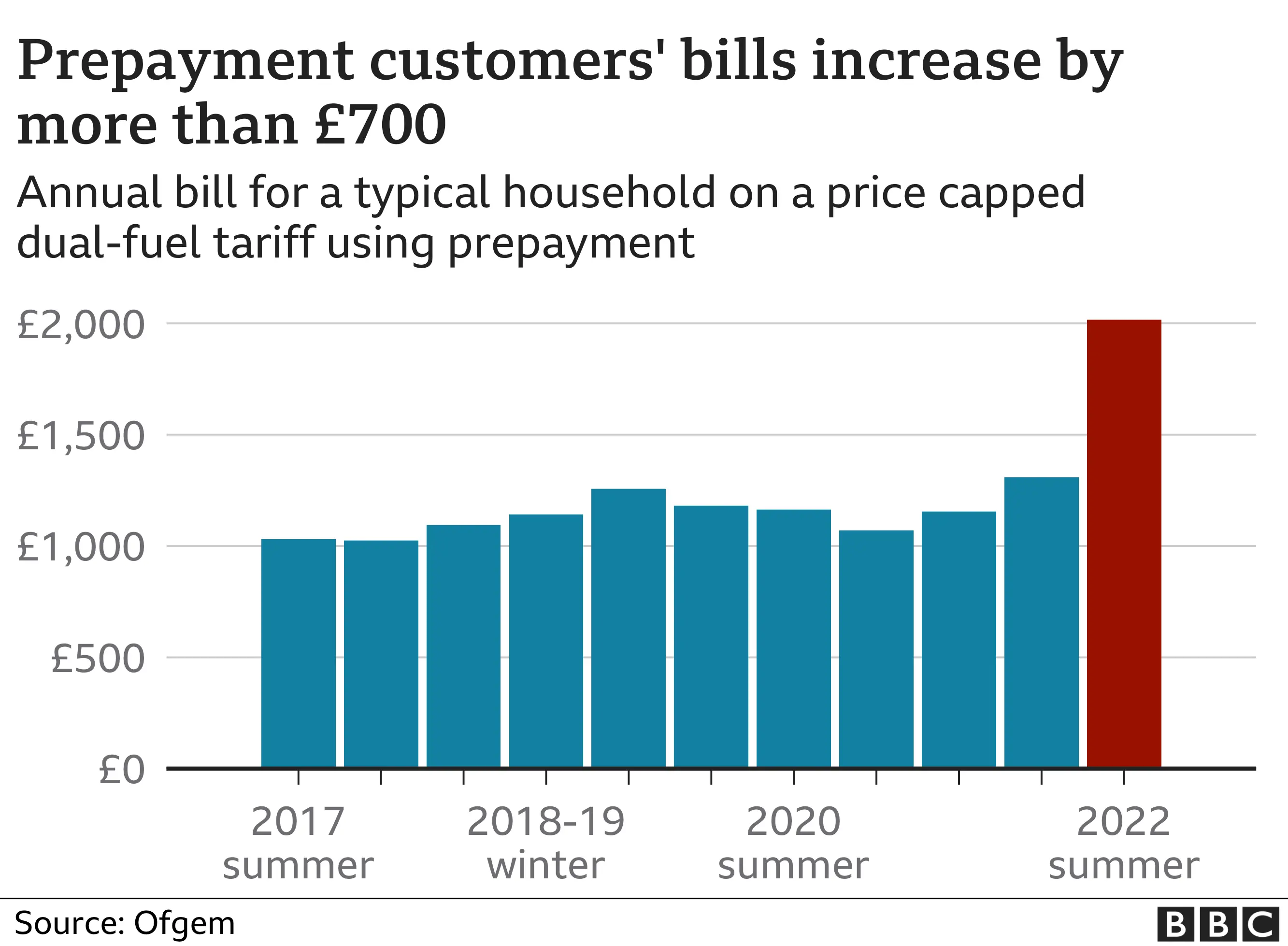Scottish courts to review warrants for force-fitting meters
 Getty Images
Getty ImagesScotland's court service has said it will review the process for utility warrants following outcry over forced installation of pay-as-you-go meters.
It is thought at least 32,000 such warrants were applied for by energy companies in Scotland in 2022.
The Times recently found debt agents for British Gas had broken into vulnerable people's homes to fit the meters.
On Thursday industry regulator Ofgem asked firms to suspend the practice.
It requested that all suppliers reviewed the use of court warrants to enter the homes of customers in arrears and said firms must get their "house in order".
In Scotland there is no overall record of how many utility warrants have been granted, with only some individual courts choosing to record the information.
The Scottish Courts and Tribunals Service (SCTS) told BBC Scotland it does maintain the number of submissions for warrants by utility firms for "processing the relevant court fee".
But it added: "A working group has now been established to review the process for dealing with utility warrants, including the data recorded, with a view to improving the information currently available."
Although Ofgem has ordered a review into pre-payment meters to "uncover poor practice", it does not have the power to enforce a total ban.
However, British Gas and EDF announced they would stop forced installation while they conducted reviews. Energy firm OVO said it had stopped in November last year.
How does the process work in Scotland?
After a long period of non-payment by a customer, an energy company may seek to place them on to a pre-payment meter.
The firm will apply for a warrant under the Right of Entry (Gas and Electricity Boards) Act 1954 - a piece of legislation drafted when utilities were under state control.
The warrants are dealt with by Scotland's Justice of the Peace court - the lowest level of the court system that normally deals with minor criminal matters. It is presided over by a justice of the peace, a lay magistrate appointed from the local community.
The act itself states the companies have to satisfy a justice of the peace that they have met their obligations to the customer. This would include a letter to the customer 14 days before the firm applies for the warrant.
Unless the customer objects, the warrant will be considered without a hearing.
Campaigners such as the Poverty Alliance and Energy Action Scotland have said the system is "opaque" and that the notification process is not adequate.

Alan McIntosh, debt advisor and campaigner, told BBC Scotland he had been contacting authorities for months to gather information about the process.
He said: "People are in the dark. It's been a worrying time for people who are maybe themselves getting in more and more debt because of the fuel bills.
"The problem is that it seems to be completely untransparent for people. How this process works, what the companies can command and what they do.
"For some, the first time you know anything, you may have a warrant granted against you."
In an example guidance form shared by Mr McIntosh with the BBC and used in Tayside, there are no questions about whether the debt is disputed or the customer's vulnerability.
However, a SCTS spokesperson said Tayside JPs "always ask if an application is opposed and whether there are any vulnerabilities'.
How prevalent is this in Scottish courts?
The Herald newspaper originally reported there were more than 32,000 utility warrant submissions in the first 10 months of 2022.
Campaigners shared information with the paper last month that showed more than 4,500 were granted because some courts chose to record the outcome.
This week, the Scottish Parliament's social justice committee agreed to write to the Scottish government, the court service and energy firms to call for more transparency in how warrants were being dealt with.
Its convener, SNP MSP Natalie Don, said she found the practice of forced entry to install pre-payment meters "appalling".
 Getty Images
Getty ImagesShe told the BBC: "We are currently in the process of approaching a range of different stakeholders to try to find out what action can be taken, because I do think there could be more transparency around these warrants.
"There is guidance, but I don't believe it's compulsory, and there could be improvements in the way that the system is carried out, in terms of notifying people when an application is made, a minimum period of notice, and checks on whether adequate efforts have been made to try and work with the people."
The Scottish government said legislative powers around utility warrants were reserved to Westminster, but it was aware of the "dreadful impacts" forced installation of pre-payment meters had on those in vulnerable circumstances.
It said: "How independent courts in Scotland consider applications for warrants made under the reserved law is a matter for the courts.
"It is vital that the UK government takes urgent steps to ensure that proper protections and safeguards are put in place to prevent a repeat of the disgraceful practices that have been reported this week.
"Meanwhile, we encourage all affected customers in need of help to contact Advice Direct Scotland."
